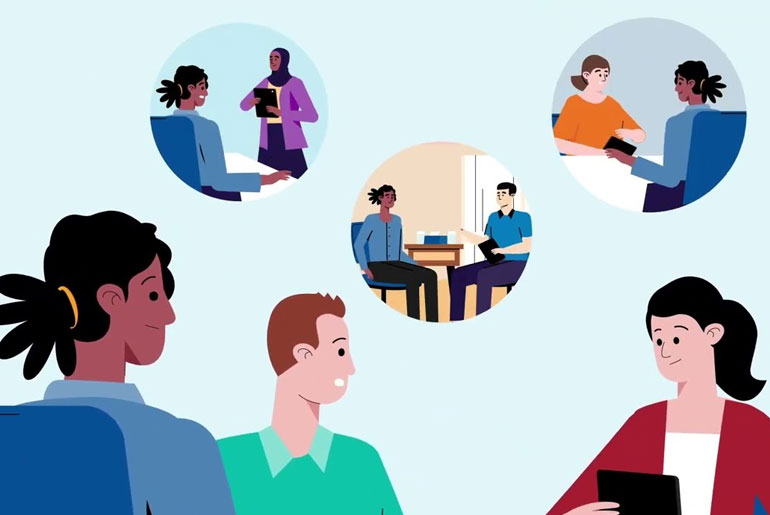The statistics on mental health disorders in India are indeed concerning, with one in seven Indians reportedly experiencing varying degrees of mental health issues, as highlighted by The Lancet Psychiatry in 2017. Additionally, the treatment gap for mental disorders could be as high as 83%, according to the National Mental Health Survey of India 2015–2016. Despite the scale of this challenge, government funding for mental health remains disproportionately low, accounting for only around 1% of the total health budget. The emphasis on mental health in philanthropic endeavors presents a unique opportunity.
In fiscal 2023-24, a significant portion of the allocated funds for mental health, approximately $86 million and $7 million, went to two major institutions – the National Institute of Mental Health and Neurosciences (NIMHANS) in Bengaluru and the Lokpriya Gopinath Bordoloi Regional Institute of Mental Health (LGBRIMH) in Tezpur, Assam, respectively. The remainder, $16 million, was designated for the National Tele-Mental Health Programme. This allocation highlights the imbalance between investment in hospitals versus community care, underscoring the need for alternative approaches to address the underfunding of mental healthcare.
To tackle these challenges, a multifaceted strategy is required. Increased awareness, a shift in philanthropic priorities, and strategic investments in infrastructure are urgently needed to drive positive change in mental healthcare delivery. Fortunately, there is growing momentum in the philanthropic sector towards initiatives focusing on mental well-being, fueled by heightened awareness following the COVID-19 pandemic.
The emphasis on mental health in philanthropic endeavors presents a unique opportunity to catalyze transformation in India’s mental healthcare landscape. By leveraging this momentum, stakeholders can work towards revolutionizing the delivery of mental health services, ensuring better access, affordability, and quality of care for all individuals in need.
Fostering Community-Led Care:
The shift towards community-led approaches in mental healthcare, as highlighted in CAPI’s report, aligns with global recommendations from the World Health Organization (WHO) and shows immense promise, particularly in the Indian context. Traditionally, mental health services have been centralized around specialized hospitals, but focusing on community-based interventions can significantly improve access and effectiveness of care.
Research indicates that many common mental disorders can be effectively managed through self-care, community support, and primary healthcare services. In India, models involving trained local individuals known as “lay counselors” delivering mental healthcare at the village level have demonstrated success in reducing mental distress. While severe cases still require specialized attention, they are fewer in number compared to those that can be addressed within communities.
Despite historical reliance on hospitals due to outdated laws and stigma surrounding mental health, recent legislative developments such as the Mental Healthcare Act of 2017 aim to shift the focus towards community-based care. This change in approach necessitates a reevaluation of funding priorities by the Indian government, with greater emphasis on community care over hospital-centric models.
Community mental health initiatives offer a cost-effective and impactful solution, providing care at the grassroots level where it is most needed. By empowering grassroots organizations, amplifying marginalized voices, and implementing culturally sensitive strategies, funders can ensure that interventions resonate with the diverse socioeconomic landscapes they aim to serve.
An illustrative example of this approach is The Live Love Laugh Foundation’s rural community mental health programme in Odisha’s Koraput district. Through this initiative, beneficiaries receive free medication, treatment, livelihood assistance, and community support, demonstrating the tangible benefits of community-led mental healthcare interventions. Such initiatives not only address the immediate needs of individuals but also contribute to long-term resilience and well-being within communities.
Building a Roadmap for the Future:
The evolving attitudes towards mental health in India reflect a significant shift driven by the concerted efforts of non-profits, private sector organizations, and individuals bravely sharing their experiences. A study conducted by The Live Love Laugh Foundation in 2021 revealed a notable increase in willingness to seek treatment for mental illness, as well as a positive change in perceptions regarding the competence of individuals with mental health issues.
While philanthropic contributions to the mental health sector have shown growth, challenges remain. Mental health is a complex field, requiring careful evaluation and consultation with experts to assess impact effectively. Philanthropists must exercise patience and ongoing effort, recognizing that progress in mental health initiatives takes time, especially in changing societal perceptions and reducing stigma.
However, there is significant potential for philanthropy to further support India’s mental health sector. Private philanthropy can drive innovative care models, preventive interventions, and policy reforms, collaborating with government agencies to amplify impact and drive systemic change. Strategic allocation of resources into community outreach, research, and capacity-building initiatives can bridge the gap between demand and provision in mental healthcare.
The overarching goal is to address the three key “A’s” of mental healthcare: Awareness, Accessibility, and Affordability. This requires a continuum of care, ranging from outpatient facilities to community-based mental healthcare, ensuring comprehensive support for individuals and communities on their mental health journeys.
Realizing India’s full human capital potential hinges upon prioritizing and addressing mental health needs. It’s a collective effort that demands unwavering commitment from all stakeholders – government, civil society, and philanthropists – to build a healthier, more resilient society where no one is left behind.
Disclaimer:
The information contained in this article is for educational and informational purposes only and is not intended as a health advice. We would ask you to consult a qualified professional or medical expert to gain additional knowledge before you choose to consume any product or perform any exercise.








